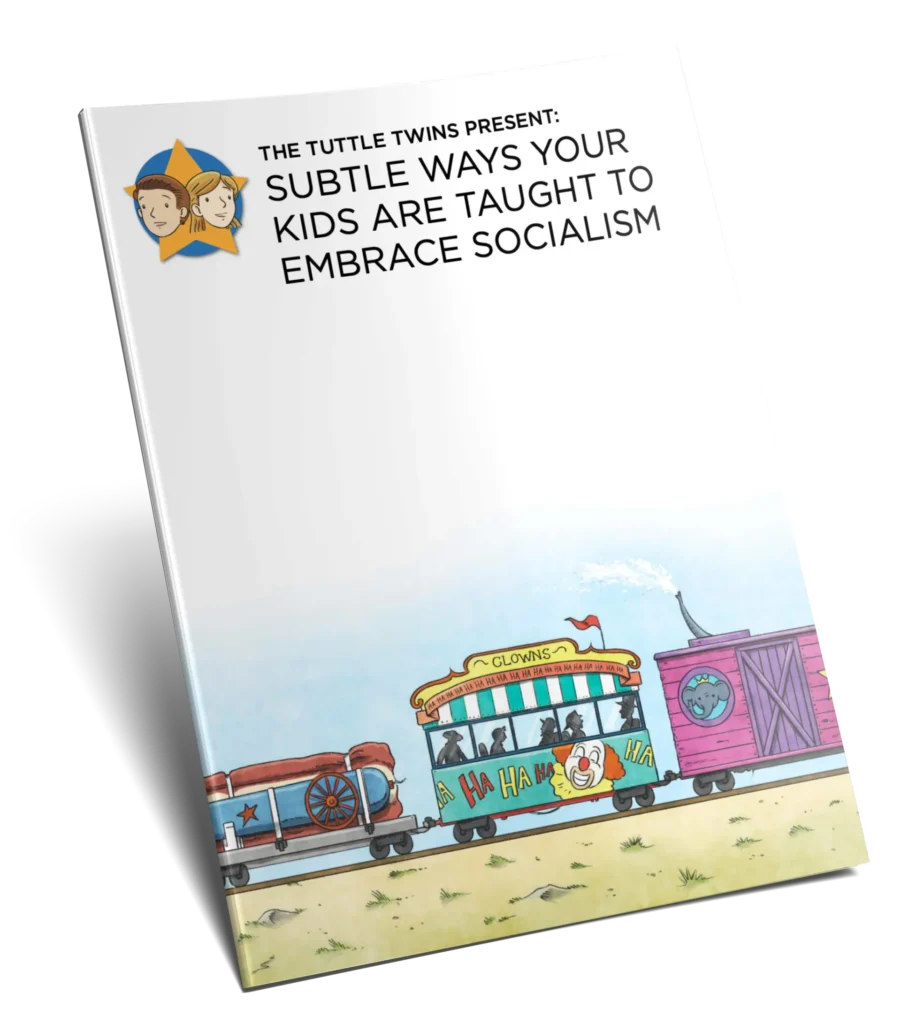Last week, the U.S. military intercepted and sank a ship of suspected Venezuelan drug traffickers.
Some politicians are applauding this as a “proper” use of the military. Heck, JD Vance even went so far as to say that “killing cartel members…is the highest and best use of our military.”
When critics pointed out that executing foreign nationals without due process is literally a war crime, his response was: “I don’t give a s*** what you call it.”
Lovely.
Rand Paul ran afoul of a lot of so-called conservatives when he took Vance to task for this. He asked people to stop and think about the precedent being set here, and I agree with him.

I wish more people would realize that whatever power you hand government when “your team” is in charge becomes the same power used when the team you can’t stand—the one you see as corrupt or dangerous—eventually takes over.
That’s the nature of government: once a precedent is set, it doesn’t go away.
We actually have a book about this. The Tuttle Twins and the Leviathan Crisis is based on Robert Higgs’ Crisis and Leviathan. It teaches kids, in a way that is fun and easy to understand, what the ratchet effect is. How government power only ever expands, but never contracts, and how governments use crises as a way to grant themselves powers and authority that the people would never cede without the presence of some boogeyman (real or imagined).
That’s something a lot of adults don’t even understand!
Of course this isn’t the first time a Paul has said something unpopular but principled.
I still remember Rand’s dad, the great Ron Paul, getting booed during a presidential debate for saying that the Golden Rule makes good foreign policy.
That same principle runs through his book A Foreign Policy of Freedom—a book that inspired our own The Tuttle Twins and the Golden Rule. The idea is simple: don’t do to other nations what we wouldn’t want done to us.
If kids can grasp that lesson, why can’t so many adults?
If the military can summarily kill suspected cartel members abroad, why not suspected gang members in Chicago? Why not Big Pharma executives whose drugs have killed far more Americans than fentanyl? Why not whoever the people in power call a threat?
Why not, why not, why not?
See, once you cross the line from rule of law to “kill whoever we say is guilty,” you’ve traded liberty for arbitrary power.
Look, of course I’m not defending cartels. But I am defending principle.
In America, we don’t execute people without trial. We don’t hand unchecked power to politicians or generals. And we certainly don’t glorify the use of military might against people who have never been convicted of a crime.
Liberty means limiting government—even when we feel afraid or angry.
The temptation to embrace state violence “just this once” always leads to it being used again, and again, and eventually, until it’s turned inward. History shows us that empires that turn their armies loose against supposed external enemies eventually point those same weapons at their own citizens.
James Madison was right to warn that, “The means of defense against foreign danger have always been the instruments of tyranny at home.”
If we want a freer, safer society, it won’t come from shrugging at war crimes or abandoning due process. It will come from teaching the next generation that government power must always be restrained, and that true justice is rooted in individual rights, not military might.
It’s why we created the Tuttle Twins books. They give kids the tools to recognize bad ideas dressed up as good intentions, and to see through the “ends justify the means” arguments that politicians love to make.
The truth is, if we don’t equip the rising generation with that understanding now, we risk a future where people think unchecked government power is normal—and by then, it’ll be too late.
And that’s not the future I want for my kids or myself.
— Connor




